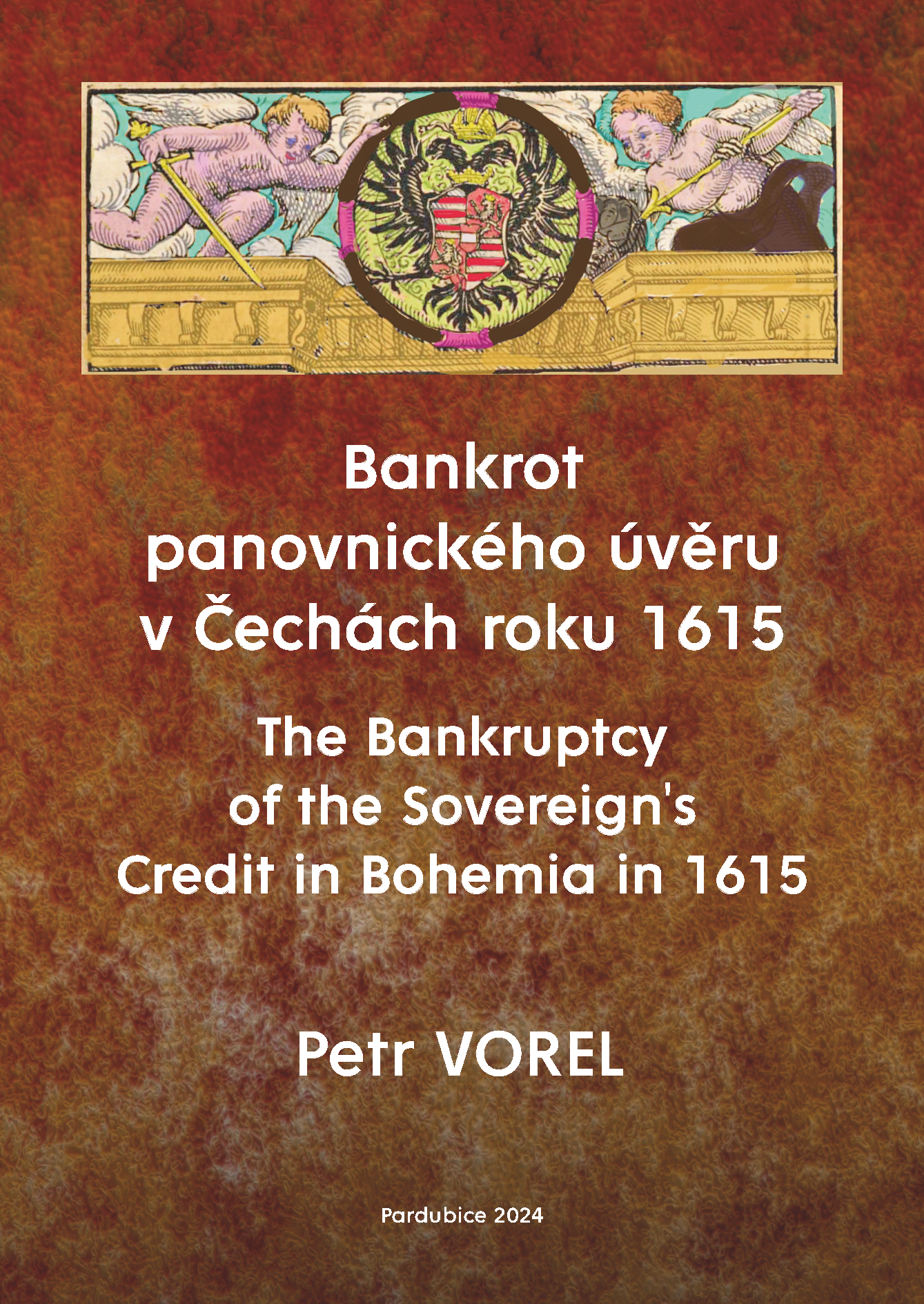European and Czech History of the Early Modern Period in the Context of Economic and Social Development
Period: 2025–2026
Team members:
Team Leader: prof. PhDr. Petr Vorel, CSc.
Researchers: Mgr. Šárka Nekvapil Jirásková, Ph.D.
PhD Students: Mgr. Zdeňka Horáčková, Mgr. Daniela Klvaňová
Master and Bachelor Students: Br. Martina Čížková
Project description:
Basic research on the broad issues of European and Czech history of the early modern period in the context of economic and social development, conducted in domestic and foreign archives and libraries. The results will be presented through participation in domestic and international conferences and in the form of scientific publications in various languages. Emphasis will be placed on the international context of the research, which will be reflected in the chosen methods of presenting results at international conferences and in outputs published in foreign languages (primarily in English).
The Bankruptcy of the Sovereign’s Credit in Bohemia in 1615 (Analysis of the problem with an accompanying edition of the list of the sovereign’s creditors)
This work, although primarily focused on the countries of the Habsburg monarchy, deserves special attention because of its methodological approach. It goes far beyond the usual standards of historiographical production. The author has managed to use a thorough knowledge of several segments of historical science: the history of money circulation; economic history related to the development of tax systems and money credit; political history and its manifestations in the form of war conflicts.
The synergistic intersection of these three thematic areas, supported by extensive new source research as well as important publications in each of them, enabled the author to formulate an entirely new hypothesis concerning the origins of the great European conflict of 1618-1648, which was initiated by the so-called Bohemian War of 1618-1620. In an innovative way, the author has used the extensive source base of accounting documentation to reveal the broader context of the deep credit crisis that hit the Habsburg monarchy in the early 17th century. The bankruptcy of sovereign credit, declared in the Kingdom of Bohemia in 1615, became a significant impetus for the economic and political disintegration of the entire monarchy. The revenues from all the lands were no longer sufficient to cover even the interest on the sovereign debts. The struggle for economic resources and to halt the upward spiral of debt became as serious a problem in Central Europe in 1615-1618 as confessional conflicts. After 1615, the Czech Estates opposition politically pushed for economic and tax reform, which worked well for two years, but at the expense of dramatically reducing the monarch's revenues.
The author uses previously unknown sources to demonstrate the mechanisms that led to the initiation of a pan-European war in 1618. The primary impetus was not a struggle between confessional camps, but a desire to control economic resources. Vorel's research returns the attention of historians of the early modern period to sources of an accounting nature, as the author has demonstrated in a unique way how, thanks to the narrative value of sources of this type, it is possible to revise even long-traditional theses, subsequently influencing interpretations of contemporary cultural, social or gender stereotypes. The comprehensively processed subject matter, which allows for extensive synchronic and diachronic comparisons, is particularly topical at the present time, when the interpretative approaches of "value, or ideological" and "material profit" clash. It demonstrates the real connection between the two levels of the problem and shows how the rational economic consolidation of the foundations of the political system is of fundamental importance for the maintenance of basic human rights (from freedom of thought and religion to the right to self-determination). However, it also highlights the dangers of state over-indebtedness and economic downturn for the collapse not only of state systems but also for the stability of Europe and the world.
The key issue of war and peace is here reimagined for the revolutionary 17th century, and also for our own time. The analytical part of the book is published bilingually (parallel English and Czech). In an extensive editorial appendix, the author has identified in 543 separate entries all the natural and legal persons whose debts were to be paid from the Bohemian taxes according to the proposal of the court chamber of 1615. On the basis of newly discovered accounting sources, he has determined for each of these items not only the circumstances of their creation, but also what happened to these bank accounts in the future (confiscation after 1620, repayment, forfeiture or the maintenance of 'dormant accounts' until 1789).
VOREL, Petr. The Bankruptcy of the Sovereign’s Credit in Bohemia in 1615 (Analysis of the problem with an accompanying edition of the list of the sovereign’s creditors). Online. University of Pardubice, 2025-05-27T13:58:17Z. https://hdl.handle.net/10195/84556. [cit. 2025-05-28].


